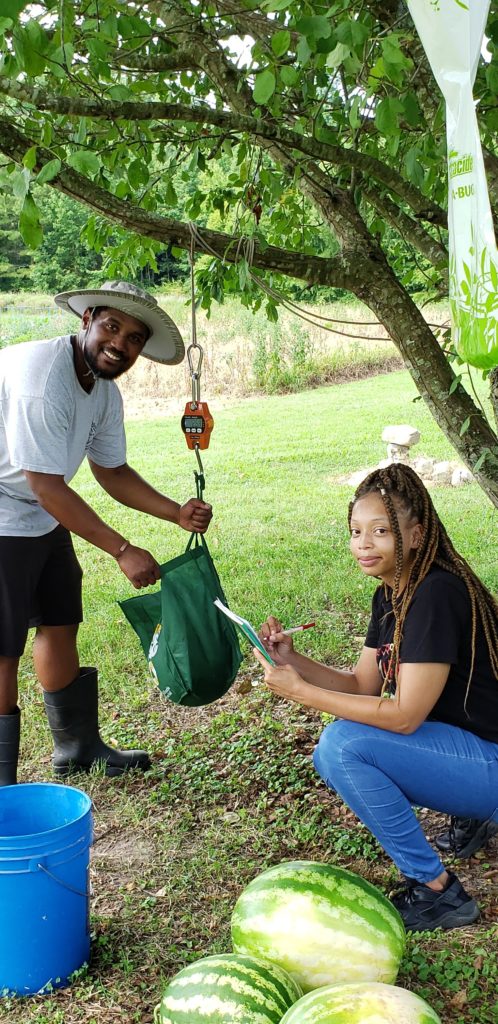
Recent survey studies indicate that less than 10% of the crops produced on Delmarva are organic. One of the key reasons for this low level of organic fruit and vegetable production is the lack of information on organically based insect pest management. Dr. Simon Zebelo and his co-workers intend to expand organic vegetable production in the Delmarva region by assisting growers in adopting integrated organic pest management practices.
This summer the team developed acceptable tactics involving the use of trap crops for managing the cucumber beetle that attacks watermelon. By definition, trap crops are the preferred hosts of the target insect pests. And through preliminary study, they learned that cucumber beetles are attracted by summer squash plants.
For the study, the summer squash was planted along the perimeter of the test watermelon plots at UMES’ agricultural research stations and on the fields of Delmarva farmers at the beginning of the spring season. It has been demonstrated that when watermelon plots are bordered with summer squash, there is a reduced infestation of cucumber beetles and an increased yield in watermelon. These findings are exciting, and they can be easily transferable to similar crops like cucumber, cantaloupe, and pumpkin.
The project is funded by the USDA/NIFA Capacity Building Grant (CBG) Program.
Pictured left: Zebelo’s research students examining the bounty.

